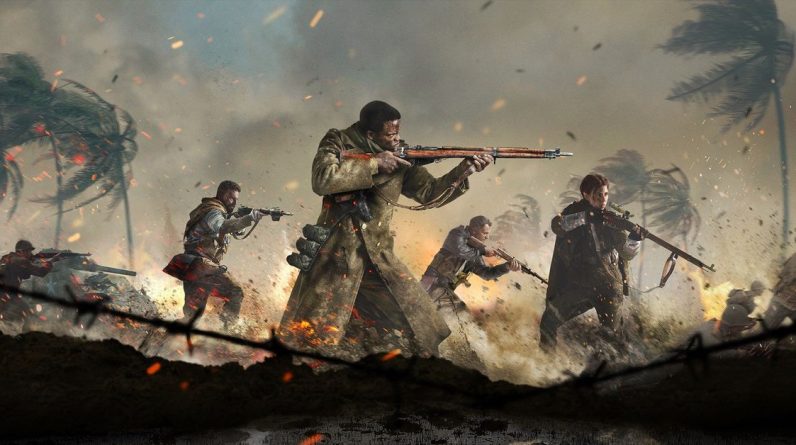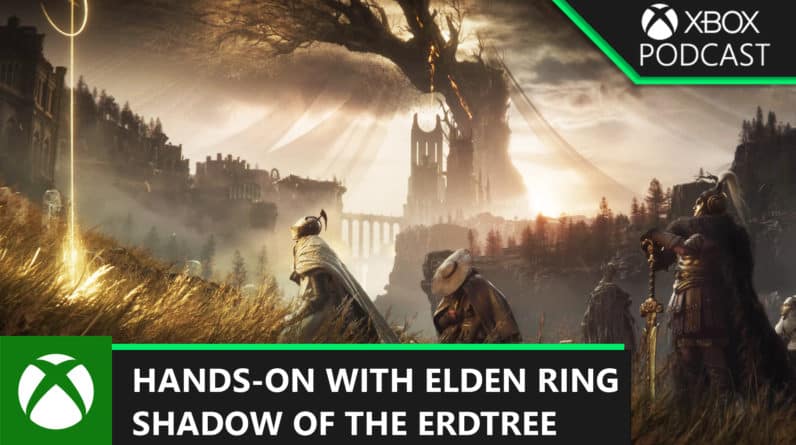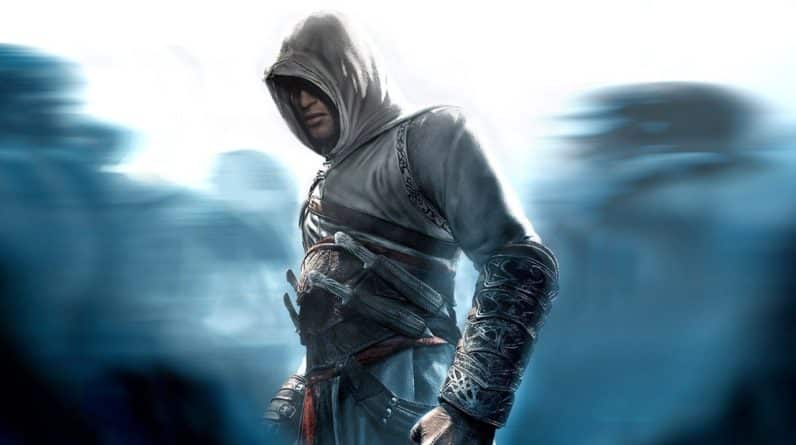
While recounting a story about the pilot Wade Jackson, one of the members of Call of Duty’s eponymous Vanguard, his squad leader, Arthur Kingsley, describes the American’s penchant for grandiose embellishment: “Every time he told the story, it was a little different.”
Call of Duty, as a franchise, has similarly been known to stretch the truth of the historical events its games are usually based on. Like the Hollywood war dramas that inspired it, the series has long been engaged in the act of building larger-than-life narratives out of the 20th century’s major military conflicts, along with the soldiers who fought in them.
The conflicts depicted within these games are presented as tests and showcases of valor, with players sat in the pilot’s seat and given a taste of what it might be like to perform the role of these soldiers. Sometimes Call of Duty hews close to history, as its first few games generally dd. Sometimes it invents from whole cloth, like 2019’s Modern Warfare, which reimagined American forces’ “Highway of Death” onslaught in the Gulf War as a Russian war crime. Both approaches are in service of satisfying the series’ main thesis: Western soldiers are heroic figures, bulwarks against external threats of dissolution and defeat.
Vanguard follows this prerogative in lockstep. On a structural level, the game conforms to all of Call of Duty’s mechanical hallmarks: levels set in varied international locations, high-tension shooting galleries, squad members barking orders as shrapnel litters the skies overhead. It will feel familiar to anyone who has picked up a controller and jumped into any of the past two dozen iterations of the franchise. More importantly, though, Vanguard is a Call of Duty game because of the role it proudly plays as a mythmaking vehicle.
:no_upscale()/cdn.vox-cdn.com/uploads/chorus_asset/file/23006297/vanguard_cover.jpg)
Image: Sledgehammer Games/Activision
The game seeks to go back to the inception of Call of Duty’s lore. Before the Saving Private Ryan-esque beach landings, before Soap MacTavish and Captain Price and the endless grizzled, keffiyeh-swaddled protagonists throughout the years, there was “Task Force One.” It’s a kind of primordial special forces unit that operated in and around enemy lines during World War II, hunting down Nazi leadership and their close-kept secrets. In a contemporary twist — and as a departure from many of the preceding games in the series — the members of the Vanguard are a relatively diverse bunch.
Led by the game’s main character, Arthur Kingsley, a Black British paratrooper, Vanguard’s playable roster of heroes comprises a variety of Allied nationals. There’s another Brit, an Australian demolitions expert, a Russian sniper, and an American fighter pilot. It’s a colorful, Whedonesque band of misfits: hyper-talented loners with chips on their shoulders and issues with authority.
The player acts out their respective stories through flashback missions, narrated in medias res by Kingsley, which chart a journey of growth from vengeful misanthropes to ruthlessly effective team players. No matter the challenges thrown at this group, it’s impossible not to expect them to pull through. Far from nuanced or conflicted figures, they are pedestalized heroes. Their function, as it has been for every series protagonist prior, is to make a complex story seem simpler than it truly is, to reify the benevolence and goodness of the Western institutions, to justify the sacrifices made in order to keep those institutions whole.
The myth goes far deeper than the games themselves. It is reflected in the dissimulation carried out by Sledgehammer Games’ parent company, Activision Blizzard, which was sued earlier this year for its sexist and discriminatory work environment. In the same way that the mythmaking process must whitewash and valorize the image of the military in games like Vanguard, it must also help establish an appearance of plausible deniability in how the game is received as a media object (going so far as to keep Activision’s logo out of its launch trailers).
:no_upscale()/cdn.vox-cdn.com/uploads/chorus_asset/file/23006410/vanguard_campaign_locked_2021_11_10_093910_vhrq.jpg)
Image: Sledgehammer Games/Activision
Yet some things cannot be denied. Activision Blizzard’s workforce hovers at around 80% male and remains majority white. It feels strange to play a game like Vanguard, which wears the diversity of its cast proudly on its sleeve, with this in mind. Vanguard’s story spends a lot of time and energy tackling the unexamined cultural shortcomings that problematize the world’s “Last Good War.” Yet, as is often the case with marginalized narratives that are told by outside voices, there are clear missteps that reveal the developer’s blinkered, if well-meaning perspective.
The characters Lucas Riggs and Polina Petrova, for instance, seem straightforward enough. Riggs’ story revolves around class divisions and inept commanders — Australian “rats” versus posh Brits. Petrova’s missions, despite featuring innovative level design and movement mechanics, tend to fall into predictable tropes. Petrova bucks against the gender norms of the period, escaping the medical tent where she was originally assigned in order to terrorize the Nazi soldiers occupying Stalingrad with her trusty sniper rifle. The quick movement speed and mantling options which allow her to leap over walls and slide under desks do a great job of evoking the controlled chaos of guerrilla warfare. But her story ends in a close-quarters fight against a Nazi commander which is overlong and blatantly derivative of the famously tense diner fight between Ellie and the monstrous David in Naughty Dog’s The Last of Us. This shallow conclusion to Petrova’s arc underlines the dated nature of its themes — a tough-as-nails woman trying to prove herself in a man’s world — and lays little new ground that has not been executed in more compelling ways elsewhere. And as the game moves away from whiteness, the gaps in understanding only seem to grow wider.
Vanguard’s main character, Kingsley, is interesting largely because of how different he feels from the norms of the genre that Call of Duty helped create. It remains, unfortunately, novel to see a Black character (well-lit and moisturized, even) appear as the marquee image of a military shooter’s box art. Seeing a Black man get to serve as a heroic leader is always a welcome and noteworthy shift in the status quo. And Kingsley cuts an aspirational figure: he’s multilingual and highly educated; he keeps the team together, and helps them overcome their self-destructive tendencies. Yet, as any person of color who has had to exist in a mostly white space inherently understands, being the singular, standout negro usually means being tokenized, and forced to stand in as a flawless representation of your entire race.
:no_upscale()/cdn.vox-cdn.com/uploads/chorus_asset/file/23006353/windmill_fire.jpg)
Image: Sledgehammer Games/Activision
Kingsley’s character is swallowed up by this tokenization. He must constantly struggle to be accepted, to be trusted. He speaks flawless Russian to Petrova and she’s quick to dismiss it. He speaks German to his Nazi captors and they laugh in his face. There’s a certain tragedy in having a Black character as capable as Kingsley forced to spend all of his time in conflict against racist intransigence, forced to prove himself over and over again.
Another area where the game torpedoes its own potential with its Black characters is in the chapters focused on Wade, the white American airman. After some reasonably enjoyable, on-rails dogfights, Wade and his copilot Mateo Hernandez are shot down by Japanese Zeroes and crash land on the Pacific island of Bougainville. There, they come across the 93rd division, an all-Black military regiment.
The 93rd’s story, though based loosely on the real-life “Buffalo Soldiers” of both World Wars, drips with after-school morality-lesson artifice. The squad leader, James “Booker” Washington (see what they did there?) quotes John Adams and instills in Wade lessons about righteous sacrifice and patriotic duty. By the end of the mission, many members of Washington’s squad wind up sacrificing themselves to help Wade and Hernandez find a plane and escape. The 93rd are less a group of men, with unique lives and perspectives, than a smooth mirror, there to reflect and focus the white character’s path towards self-improvement. They’re two-dimensional, magical figures, not people.
Remembering the brand which effectively owns all these decisions, it’s not necessarily a surprise that they’ve been undercooked. Rather than truly progressive writing, Vanguard gives us a version of representation that still serves whiteness.
As part of the suit against Activision Blizzard, two Black female employees described a workplace where they were constantly undermined and judged on a harsher rubric than their white coworkers. One employee mentioned being “ … micromanaged such that her male coworkers were known to be playing video games without any intervention by her supervisor, but her supervisor would call and check on her if she took a break to go on a walk.” Both employees eventually left the company as a result.
Would these women have been considered more special or more worthwhile if they had put up with the unfair additional pressure and stuck around instead? In showcasing the exemplary behavior of its multicultural model minorities, it feels like this is precisely what Vanguard is suggesting: As long as you tough out the inequalities and take pride in simply being allowed the chance to get your foot in the door, you can be that first black or brown face in a racist and hegemonic culture. You can be part of the Vanguard.
:no_upscale()/cdn.vox-cdn.com/uploads/chorus_asset/file/23006367/codcharacters.jpg)
Image: Sledgehammer Games/Activision
As each character navigates their backstory missions, on the margins of pivotal battles across the war, they show what they are willing to sacrifice for the same old hegemonic power structure. Game development, exemplified by the allegations against Activision Blizzard, often seems to operate under the same cruel expectations. After all, employees breaking down from being sexually harassed, losing out on wages and promotions due to their race or gender, and quitting as a result are all just examples of the weak being culled, right? Quitters apparently don’t deserve any credit, nor the adulation we save for the ones who gritted their teeth and bore it through to the end. It doesn’t matter that the ones who make it tend to be those with enough privilege and power to withstand the gantlet. Games like Vanguard reinforce the fiction that those who quit are simply not dedicated enough to the righteous cause of the good guys.
Within the modern, corporate media landscape, the shallow, tokenized representation to be found in games like Vanguard, is all the marginalized can ever seem to hope for. Here we have a new version of an old story, which goes as far back as it can, to when war was unambiguously good. It skips past the present, plagued by the West’s unseemly colonial interventions and wasteful acts of aggression; narratives which can no longer be salvaged or controlled (though not for lack of trying). It’s far easier to retroactively add black and brown characters to an overwhelmingly white and western struggle (with the brief exception made for the Japanese who are tastelessly presented as buffoons who swing swords and speak in mangled English).
Underneath it all: a creeping desire to start fresh. To retell the mythology and trick us into thinking things are different this time. It remains our job to unearth all which these stories seek to hide.
Call of Duty: Vanguard was released Nov. 5 on PlayStation 5, PlayStation 4, Windows PC, Xbox Series X, and Xbox One. The game was reviewed on PlayStation using a pre-release download code provided by Activision. Vox Media has affiliate partnerships. These do not influence editorial content, though Vox Media may earn commissions for products purchased via affiliate links. You can find additional information about Polygon’s ethics policy here.






